Ukip conference: Why Jeremy Corbyn is the best gift Labour could have given Nigel Farage
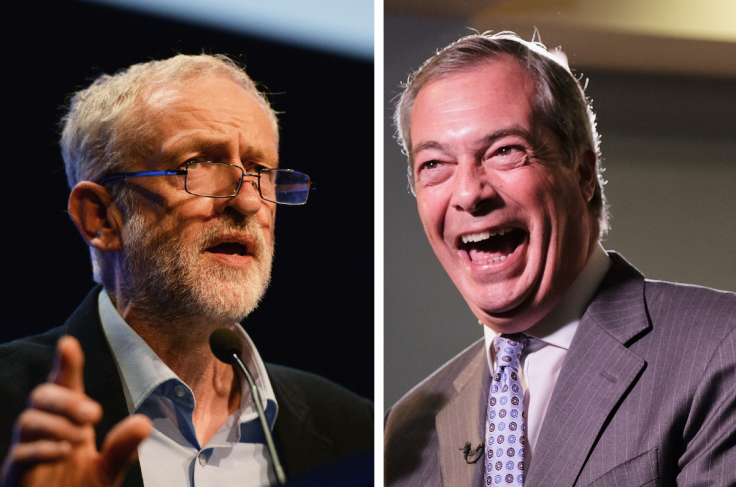
Despite their vast differences, the appeal of both Jeremy Corbyn and Nigel Farage is strikingly similar. They purport to be anti-establishment men of principle who say what they believe and believe what they say; antidotes to the post-1997 automaton politics of slick media training, soundbite bleating and an awkward pragmatism where compromise defined political leadership.
The public by and large distrust Westminster because they think it is rotting with corruption, greed and elitism. A palace of venal, out-of-touch overlords who trample on the will of the people to pursue their own ideological and commercial interests.
Both Farage and Corbyn are detached from this Westminster mainstream. They are the outsiders seen by their supporters to be challenging a cosy consensus at the centre of British political power. But this is where the similarities end. At the business end of politics, where it matters most, Corbyn and Farage are poles apart on policy. They are, in fact, at war.
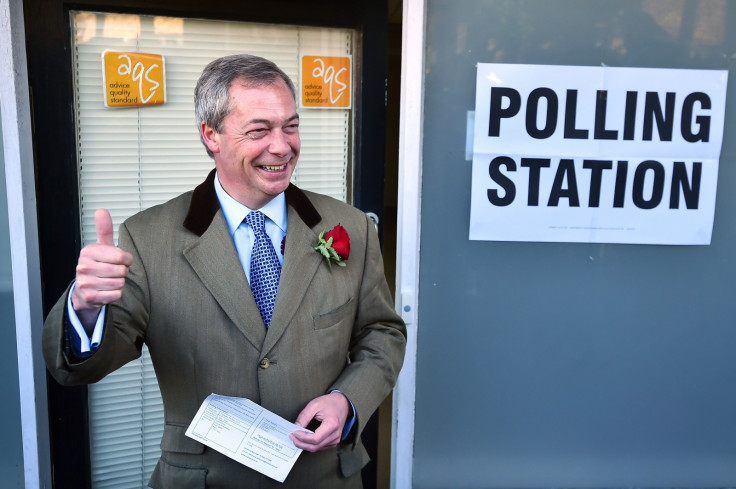
Corbyn needs to win back former Labour voters who have drifted to Ukip in recent years – and damaged them in seats across England at the 2015 general election – if he is to stand any chance of entering Downing Street in 2020. And Farage needs to not only retain the Labour supporters he has lured over, but also woo more if Ukip is to win more than its current single House of Commons seat, held by the maverick ex-Tory and MP for Clacton, Douglas Carswell.
But Farage has come to the fight armed with a tank. Corbyn is packing a spud gun. According to polling by Lord Ashcroft of voters who defected from Labour to Ukip, immigration was their top priority. Almost all of them, 99%, think there has been too much of it and it should be reduced.
It is hard to see how Corbyn's pro-immigration message will resonate with Ukip voters in the midst of the current migrant crisis when immigration is ranked as the number one issue facing Britain in the opinion polls
They want tougher borders and that will mean quitting the European Union because of its fundamental, unshakeable free movement policy. Moreover, a small majority of Labour-to-Ukip defectors thought the welfare system was too soft (54%). And 37% of Ukip defectors said they were worried Labour would borrow and spend too much.
To sum up Corbyn's positions, and so his fundamental problem in trying to win Ukip defectors back: pro-immigration, will campaign to stay in the EU, wants to increase welfare spending significantly and, more generally, government spending in most areas. That is not a winning pitch for Labour to Ukip defectors. And it may well drive more away from the party, especially when Farage's Ukip is offering them a platform that is aggressively hawkish on immigration, the EU and welfare.
"It is certainly possible that his brand of anti-austerity, anti-establishment politics will appeal to some former Labour voters in the Midlands and the north of England that abandoned the party for Ukip in 2015," Keiran Pedley, associate director of the pollster GfK, told IBTimes UK. "However, it is hard to see how Corbyn's pro-immigration message will resonate with Ukip voters in the midst of the current migrant crisis when immigration is ranked as the number one issue facing Britain in the opinion polls."
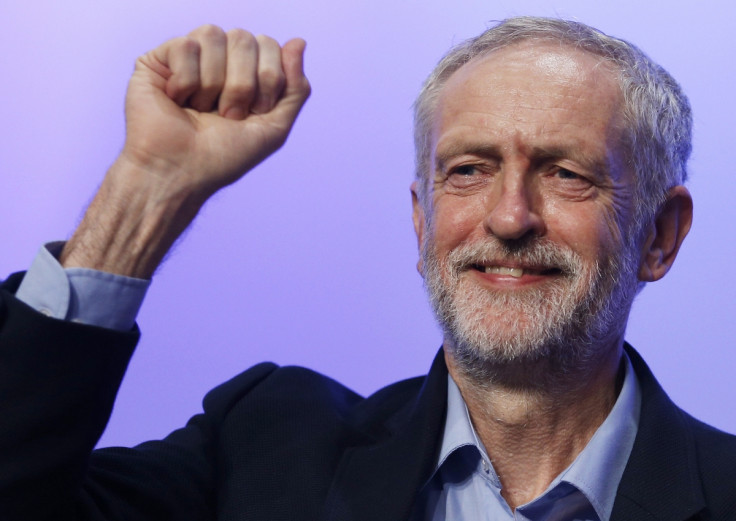
Joe Twyman, head of political and social research at the pollster YouGov, told IBTimes UK that Corbyn's soft scepticism on the EU – he wants to stay in, but for it to move away from its free market agenda – is good news for Labour-turned-Ukip voters.
"But crucially, he remains an Islington liberal," Twyman said. "He remains very supportive of immigration. Very supportive of refugees. Very supportive of benefits and welfare and all that sort of thing.
"These are things that we know Ukip supporters really don't like as a matter of fairness. They think that Britain has changed in a way with which firstly they are not comfortable and secondly which they did not consent to. And they think that particularly the benefits system, for example, is run in an unfair way, that other people benefit from it in a way that they don't.
"So will Jeremy Corbyn come up with something that will win those people back? I think it's very, very unlikely. Without addressing that, winning back those supporters will be difficult because he will just come across actually as the Islington liberal that he is, which will not please people who are now voting Ukip in the – for want of a less clichéd description – working men's clubs of Newcastle, for example."
But more than just policy, Ukip speaks to the traditional values of many old Labour voters. Of family, monarchy and patriotism. You would not catch Farage in "respectful silence" while others are singing the national anthem at a high-profile Second World War memorial event. This seemingly holier-than-thou rejection of his duty as leader of the opposition and representative of millions of Britons – to sing the national anthem at a service for the war dead – gives Ukip a chance to paint Corbyn as just another member of the sneering, out-of-touch liberal elite.
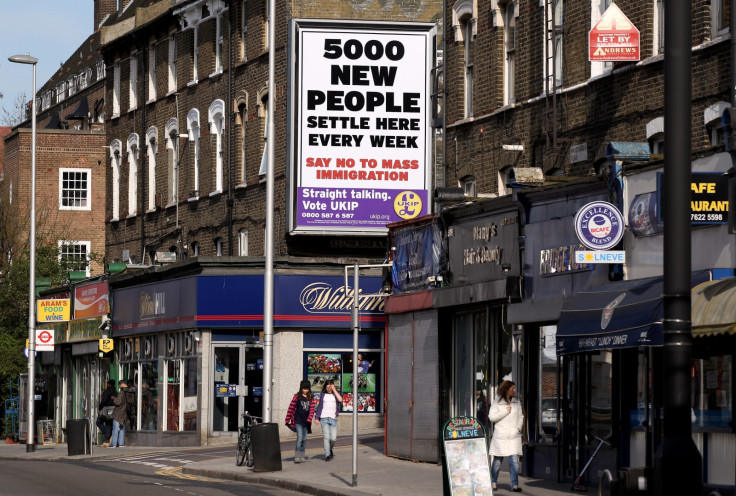
Corbyn's radicalism on issues like the monarchy puts him out of step with many ordinary British voters. Even he acknowledges republicanism is a battle he cannot win at the moment. How can the Labour leader appeal to those in the working and lower-middle classes, who hold traditional values about duty, patriotism and respect, when he cannot even bring himself to sing the national anthem at a service to commemorate the war dead?
"Most people don't vote on policies," YouGov's Twyman said. "There are very few people who actually sit and carefully look through each of the manifestos that each of the parties launch in order to come to a reasoned decision about which one's policies is most in tune with their own.
The story that Ukip supporters have told themselves and others about Labour is it no longer represents them. It's no longer the party for people like them. They cannot trust it. It will not be good for them
"Instead what happens is you vote based on these broad narratives about the parties. The stories that we tell ourselves and each other. And the story that Ukip supporters have told themselves and others about Labour is it no longer represents them. It's no longer the party for people like them. They cannot trust it. It will not be good for them.
"So those people are going to look at Corbyn and think that is not a person that I can trust. That is a person who goes to a memorial ceremony and doesn't sing the national anthem. That is a person who goes to a refugee march and gets very excited about things.
"If I were a Ukip strategist, my advice to Nigel would be to focus on those Islington liberal policies and stories that you want to get across to damage Corbyn. So I would keep talking about him not singing the national anthem. I would keep talking about his support for immigration. I would keep talking about him being soft on benefits and happy to be unfair against people like the Old Labour supporters. And say that he is ineffectual, unpopular and also not like them [...] only interested in representing his own views and a very narrow, politically obsessed clique."
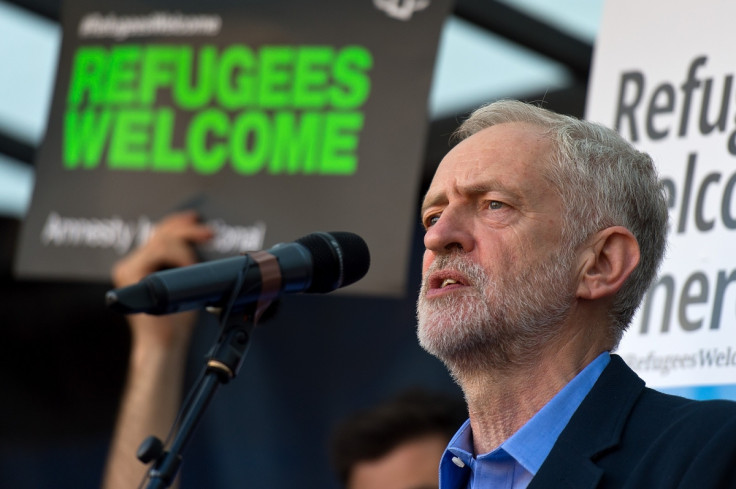
There is a bigger picture than Corbyn upholding his republican principle, one he is going to have to start seeing if he wants to win a general election: political realism. And the political reality in British politics is that you sing the national anthem if you do not want to come across as disrespectful or out of touch.
This sort of thing is important to many voters, especially those who put their ballot paper crosses next to the purple pound sign in a yellow circle. And many of those people are the old school Labour voters from working-class communities that Corbyn insists he can win back to the party which they think has abandoned them and their values.
But for Corbyn to do that would mean compromising on some of the very principles he so loudly trumpeted during the Labour leadership election, that his mass of supporters in and around the party expect him to uphold at all costs, even an election loss.
It seems unlikely he will, especially on one so emotive as immigration. And that is why Corbyn is the best gift Labour could have given Ukip.
© Copyright IBTimes 2024. All rights reserved.






